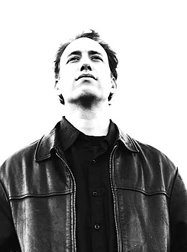 When I first started writing about birdmen and wingsuits I initially wanted to discover some underlying psychology that explained why the skydivers that kept skydiving kept skydiving. I was hoping to find, in essence, a type, and went so far as to dream up three of them: 1) The daredevil that has no fear 2) The straight man that needed to overcome fear 3) The addict for whom feeling fear—and/or overcoming it—is itself a delightful high. Sounds good, perhaps, but it happens to be all folderol. A drop zone is more like a ski slope than anything else—the airplanes just another way to bring people up so they can have fun coming down. Adrenaline is surely a factor, but at the time I focused on the relationship to fear because—ahem—I was feeling plenty of my own. There are as many kinds of people skydiving as there are skiing and after a handful of jumps fear is just something to get out of the way if it happens to be there at all.
When I first started writing about birdmen and wingsuits I initially wanted to discover some underlying psychology that explained why the skydivers that kept skydiving kept skydiving. I was hoping to find, in essence, a type, and went so far as to dream up three of them: 1) The daredevil that has no fear 2) The straight man that needed to overcome fear 3) The addict for whom feeling fear—and/or overcoming it—is itself a delightful high. Sounds good, perhaps, but it happens to be all folderol. A drop zone is more like a ski slope than anything else—the airplanes just another way to bring people up so they can have fun coming down. Adrenaline is surely a factor, but at the time I focused on the relationship to fear because—ahem—I was feeling plenty of my own. There are as many kinds of people skydiving as there are skiing and after a handful of jumps fear is just something to get out of the way if it happens to be there at all.That said, there is one human trait that crops up again and again amongst winged men: a huge percentage of them have lost one or both parents as a child. Bat-wing survivor Charlie (or Carl) Laurin (shown above), for instance, was adopted as an infant. Jari Kuosma lost his father when a teen. Clem Sohn lost his mother while still a child. The list goes on. The easy explanation is that having just a bit less in the way of parents to answer to removes inhibitions to take risks. Us fully parented children tend to hear something like a voice saying "you shouldn't do that" when confronted with risk, even when fear is not an issue. When in Pamplona, for instance, a friend of mine tried to back out of running with the bulls because he knew his mother would be upset if anything happened to him. (As it happened, when his credit card was stolen he had to call home to have it cancelled. His mother, hearing that he was in Pamplona, cheerfully asked if he would be running with the bulls. And so he had to.) Had he never had a mother, perhaps he wouldn't have tried wriggling out the situation in the first place.
Or maybe it's just a statistical fluke. One way to figure it out would be to take a crop of children and "remove" the parental influence—through kidnapping or murder—and then compare the children, once they'd grown up, to some control group. Tough to get the funding on that one, though. So I'll tell you what: I'll ask a few shrinks if my theory holds water if you'll ask your skydiving, BASE jumping, sword swallowing, human cannonball friends how many parents they have.
And the answer is yes, he would, if you pushed him just a little too far.

2 comments:
I wondered, after reading most of your book, whether parentless birdmen had a sense of being abandoned or thrown away. Perhaps a psychological stretch, but would jumping out of a plane be an extension of that feeling?
This question of yours about the motivations of freefalling, which is quite unnatural for any normal human being, is something that comes back to my mind from time to time. Here is my last answer in video:
http://www.youtube.com/watch?v=XPPnBeMHv9A
Regards from "Gibolin"
Post a Comment